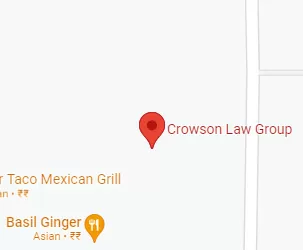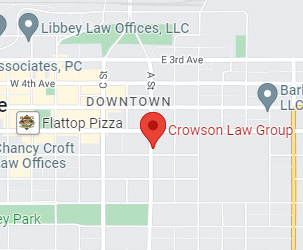Can You Sue Wasilla City for a Personal Injury?

You are strolling down the street, minding your own business, when suddenly you slip and fall on a cracked sidewalk in front of a Wasilla city government building. Or you are driving, and an on-duty police officer runs a red light, colliding with your vehicle. In both scenarios, you have been injured due to what seems like the city’s negligence. So, can you sue the city for your injuries? In this article, you learn how to build a negligence claim against a city and what challenges you might encounter along the way.
The “Notice of Claim”
Before you even think about filing a lawsuit against a city for a personal injury, there is a crucial step you must take. In Alaska, you are required to file something called a “Notice of Claim” against the city. This notice serves as your formal declaration of intent to pursue a lawsuit.
The notice needs to include specific information, such as:
- Names and contact details of all parties involved in the accident.
- A detailed account of where, when, and how the accident occurred.
- A description of the extent of your injuries.
- The precise amount of damages you are seeking.
You want to be thorough when preparing this notice because state laws often dictate what it should contain and the timeline for its submission. Please adhere to these requirements to avoid your case being dismissed. So, familiarize yourself with Alaska’s laws regarding Notice of Claims.
Preparing Your Lawsuit Against the City
After you have submitted your Notice of Claim, the city may choose to settle with you to avoid a protracted legal battle, or they might outright deny your claim. If they deny it, you are left with the option to proceed with a lawsuit.
To build a solid case for negligence against the city, you need to establish four crucial elements:
- Duty of Care– you must prove that the city had a duty of care towards you. This duty can vary based on the circumstances of the accident, whether city employees were involved, and your legal status at the time of the incident.
- Breach of Duty– You must demonstrate that the city breached its duty of care. In other words, they failed in their responsibility to keep you safe.
- Causation – You must establish that this negligence directly caused your injury. Connecting the dots is vital.
- Actual Injury – You need to provide evidence that you suffered an actual injury due to the city’s negligence. This could include medical records, bills, and more.
As with any negligence lawsuit, evidence is your strongest ally. Collect witness statements, photographs, medical records, and bills. You may also need reports and testimony from medical professionals who treated you. The more evidence you gather, the stronger your case becomes.
Immunity
Alaska has laws that grant immunity to cities and their employees for specific negligent actions. For instance, imagine a pedestrian getting injured when a police officer, responding to a 911 call accidentally hits them while they are jaywalking with headphones on.
In such a case, the pedestrian might struggle to maintain a claim against the officer or the city due to government immunity. However, if you can prove that the police officer was on duty but driving recklessly without sirens and lights, the city’s shield of immunity may start to crack.
Just like in a negligence claim against an individual, the burden falls on you to prove that the city owed you a duty of care. It is a maze of legal intricacies that only an Alaska accident attorney can navigate successfully. Some scenarios where the city is not liable for your injuries are:
- The city might not owe a duty of care to trespassers injured on city property. However, if you were working for the city on their property, the situation changes.
- If you slip on ice and snow outside the city courthouse, the duty of care might only apply if the city is aware of the hazard.
Suing a city for your injuries can be challenging. The complexities are evident, from the initial Notice of Claim to the challenges posed by governmental immunity. Each case is unique, and the outcome depends on the specific circumstances and the laws of the state where the accident took place. So, the need for expert legal advice becomes all the more critical. Your journey for justice might be challenging, but with the proper legal guidance, it can lead to the resolution you deserve.


